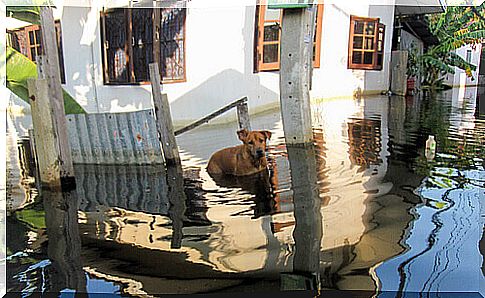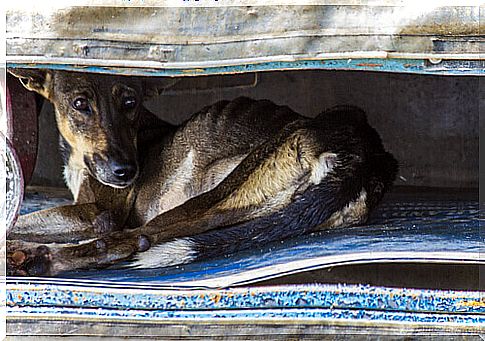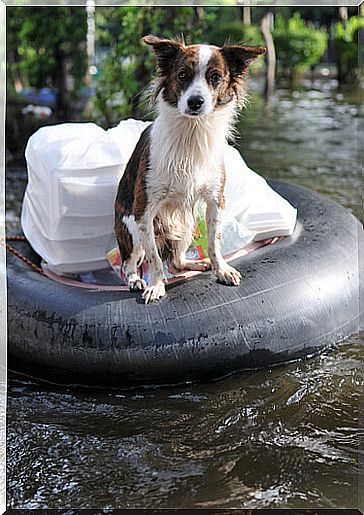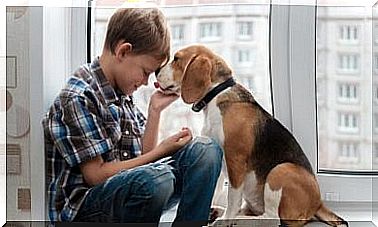Flood: Taking Care Of Your Pet

When natural disasters hit your home, the consequences are devastating for all family members, bar none. This problem, of course, concerns both people and any pets that belong to the family unit. That is why we have decided to give you some useful information and tips to be able to take care of your pet in the event of a flood.
In the moments leading up to a possible natural disaster, pets often appear nervous and agitated. It can be said that it is their way of letting you know that they know that something bad is about to happen. A kind of premonitory power, the famous sixth animal sense.
If the relevant authorities or the media inform you of the possible occurrence of a flood or any other natural disaster, there are many ways to take care of your pets. Earthquakes, floods, overflowing rivers… If you have a dog, cat or any other pet, it is your responsibility to plan an emergency protocol so that you can save the family and get the animal safe in time.
Protect pets in case of flood
The floods occur when excess water penetrates beyond the man-made defenses, threatening homes, houses and other buildings. Underlying these terrible floods are various factors such as the destruction of dikes, the rupture of pipes, the overflow of a nearby river, and so on.
But they can also occur due to natural events such as torrential rains, earthquakes or tsunamis. Unfortunately, floods are often also a consequence of the tides.

When it comes to natural disasters, city weather centers often can predict such disasters. As the dramatic event occurs, you will need to be prepared to put your contingency plan into action .
Always pay attention to the news and take civil protection recommendations seriously. It is also necessary to have at hand the list of nearby shelters and the most essential emergency numbers.
What to do before a flood?
- We repeat: take preventive measures. Before the news of possible floods, it is important to establish communication with the civil protection and with the trusted veterinarian.
- Also consider the possibility of an evacuation. In the event of a major disaster, it is important to know where the animal shelters are. These are equipped with the necessary devices to assist a pet in an emergency. In addition, they have specialized personnel.
- Keep the pet’s vaccinations up to date
- Prepare an emergency kit for your dog or cat. This should include the portions of food needed to feed the animal for a week, as well as medicine and blankets. In addition, it must contain the animal’s documents such as photos, vaccine booklet and identification cards. It is also helpful to include a list of shelters that can take care of your friend.
- Put a collar on your pet, without forgetting the tag with all the contact details of you owners: telephone number, home address and email, as well as the name of the pet.
What to do with a pet during a flood?
First of all, keep calm and, in the event of an evacuation, it is recommended that you keep your friend tied up. Animals often get nervous and, in the presence of a lot of water, they tend to flee, instinctively. With a collar and leash you will prevent it from escaping or getting lost, putting yourself in worse trouble.
When it comes to small animals, such as rabbits or hamsters, it is advisable to keep them in their cages. This way, they will take the situation normally and calm their anxiety.

If the animal has difficulty walking, it must be transported safely. Generally, attics or rooftop terraces are the recommended areas to escape floods.
Once safe, it is important to try to calm the animal, making sure it is okay. Hug him, offer him food and water, always addressing him in a calm and quiet voice, to help him overcome fear.
What to do after a flood?
Immediately after a flood, the family group must remain united and, logically, await the help of the rescuers, qualified professionals for these situations.
Animals should be prevented from drinking standing water or consuming decaying food. You will also need to be careful not to go near electrical outlets or energy sources.
Once the sad event is over, the main thing to do is take the animal to your vet. Only the specialist, in fact, will be able to evaluate his conditions both from a physical and psychological point of view. He may be suffering from post-traumatic stress or shock from the catastrophe he has just experienced. The effects of this condition can be a lack of appetite and sleep disturbances, as well as difficulty in controlling one’s needs and some obvious socialization problems.
Finally, it is essential to resume your normal daily routine. After the natural disaster, this will help the whole family overcome this dramatic experience. Daily activities, both inside and outside the home, should be restored as soon as possible, to leave the sad memory behind.
In very severe cases, your vet may also prescribe medications to control the effects of post-traumatic stress on your pet. The goal is for your friend to be able to overcome what he has lived quickly, in order to recover balance and serenity within the family.








